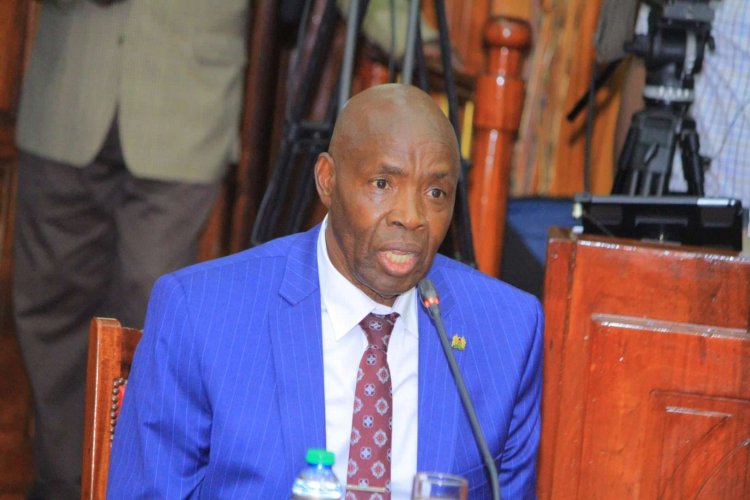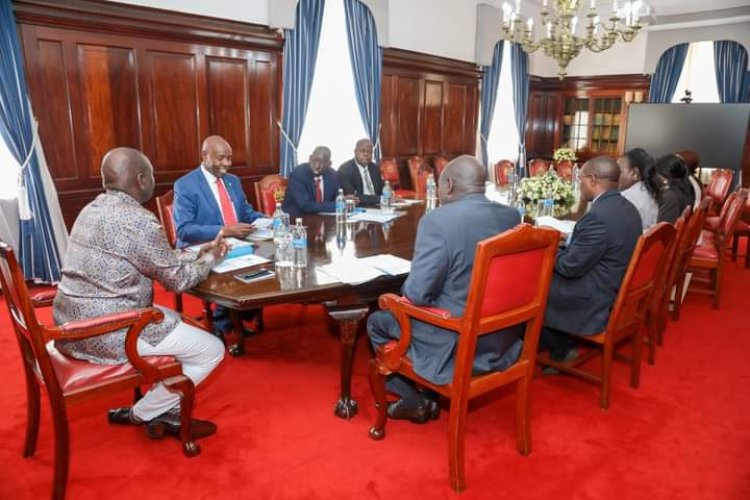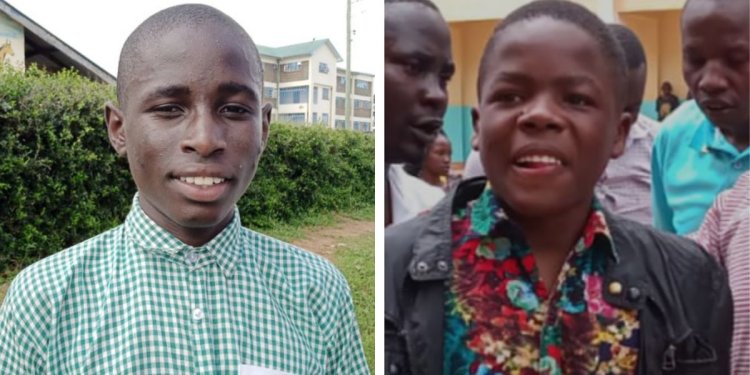Machogu Explains Why He Did Not Announce Top KCPE 2022 Candidates
In March 2022, Machogu's predecessor, George Magoha named the top students and their respective schools...

Education Cabinet Secretary (CS) Ezekiel Machogu announced that the government will no longer reveal the top rankings of students in the Kenya Certificate of Primary Education (KCPE) examinations.
Speaking on Wednesday, December 21 while releasing the 2022 KCPE results at Mtihani House, Machogu said that he will not introduce the ranking even for the Kenya Primary School Education Assessment (KPSEA) exams to curb negative competition.
In March 2022, Machogu's predecessor, George Magoha named the top students and their respective schools in the KCPE 2021 exams whereby Bruce Magata Mackenzie of Gilgil Hills Academy emerged top with 428 marks.
The other students in the top 10 categories were from Makini School, Holy Family Misihu Girls, Emmanuel Academy, Kitengela International School, Rofin Field Junior Secondary School, White Star Academy, Stopping Stone Preparatory, Nyagwa Primary School, PCEA Mwimbi Boarding Primary School.

Education Cabinet Secretary Ezekiel Machogu with President William Ruto at State House before the release of the 2022 KCPE results. /STATE HOUSE KENYA
"Going forward, even for the Kenya Primary School Education Assessment (KPSEA) which we’ll release next month, there’ll be no ranking. It introduces unnecessary competition, which isn’t necessarily the case when there’s an instrument of measurement,” CS Machogu said.
He added that President William Ruto had agreed with the decision when he presented the results at State House in Nairobi.
Backing up the CS's sentiments, Kenya National Examinations Council (KNEC) CEO David Njeng’ere stated that ranking contributes to toxic competition which in turn increases the likelihood of malpractices in schools.
“It doesn’t have merit. I wish we were discussing the quality of education and how exams can be used as a scorecard on the quality. That should be the conversation, like we have generally achieved gender parity in our education and that we have more learners in the average bracket. The tail is becoming shorter.
“We’re raising the stakes (by ranking) and some people feel they must be number one no matter what it takes. Can we bring down the stakes!” Njeng’ere added.
In previous years, while KNEC did not rank all the candidates, it had compiled the results of the top performers.
For this year, two students tied at the top with 431 marks; Fwaro Makokha Robinson and Otieno Lewis Omondi Glen.
Candidates who scored 400-500 marks were 9,443 (0.77%), 300-399 were 307,756 (24.94%), 200-299 were 619,593 (50.22%), 100-199 were 296,336 (24.2%) and those who scored 1-99 marks were 724 (0.06%).
Of these candidates, 620,965 (50.32 per cent) were boys while 612,887 (49.67 per cent) were girls, a clear indication that the country has achieved gender parity at the primary school level. In the 2021 KCPE, 1,214,031 candidates sat the examination.
The 2022 KCPE is the second last national examination of its kind as the government plans to phase out the 8-4-4 curriculum for the competency-based curriculum (CBC).

Lewis Omondi Otieno Glen and Fwaro Makokha Robinson. /VIRALTEAKE






